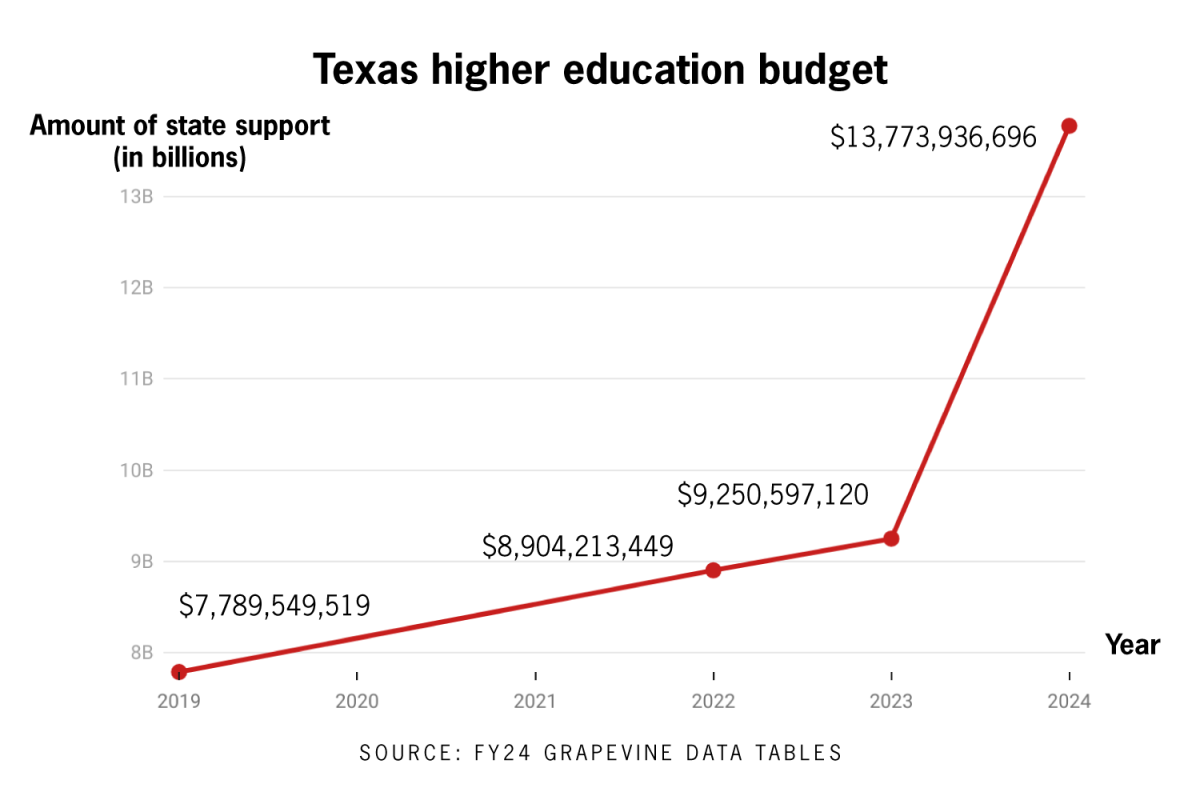Higher education institutions in Texas saw a $4.3 billion increase in state-allocated funds during the 88th legislative session, according to a national report.
The report from the State Higher Education Executive Officers Association revealed Texas allocated $13.7 billion towards higher education for the 2024 fiscal year, despite a 50% decrease in funds at the federal level. The funds aim to ease college affordability and match Texas’ increased need for higher education, said Harrison Keller, commissioner of higher education.
However, these investments came with conditions. The state only agreed to approve part of these funds if the legislature passed Senate Bill 17, which bans diversity, equity and inclusion offices at public universities, and SB 18, which increases government oversight on tenured faculty.
Universities cannot spend any of the funds before proving they comply with the bills, and if universities do not show compliance, the state will remove all funding, Keller said.
Since Texas is currently in fiscal year 2024, the report can still fluctuate and does not adjust for inflation, said Kelsey Kungel, the policy analyst for State Higher Education Funding. She said the final numbers will not be revealed until after the fiscal year ends in late July, but she does not expect the numbers to change much.
Keller said when he sat with Gov. Greg Abbott and other Texas policymakers during the session, he questioned the future legacy of the state’s current investments. The discussion landed on increasing investment in higher education, mainly to match Texas’ increased need for higher education, Keller said.
As technological and economic advancements in the state attract more people to relocate here, job competition increases. This makes it harder for locals to compete without a college degree, he said.
“We have to move quickly to educate many more people to higher standards than we’ve ever achieved before because the vast majority of these new jobs in Texas require at least some education training beyond high school diplomas,” Keller said.
Texas can also attribute these funds to the growing college affordability issue, Keller said.
The report expects $751 million to go to state financial aid. Kungel said many states deal with declines in enrollment, pressuring them to stabilize tuition rates. During the 88th legislative session, the state approved giving extra funds to universities, but only if they agreed to freeze tuition rates for the next two years.
“Those are signs of interest from all of them that are attempting to make college more affordable for students,” Kungel said. “In other cases, it’s to show that commitment to higher education over the past few years.”
Keller said the state funds and state endowments, which amount to 23% of the University’s budget, will go toward research and innovation investments, including advancing semiconductor facilities and research.
“This really was a historic session with the legislature getting behind the vision that was articulated for building a talent-strong Texas,” Keller said. “There were serious discussions and policy design leading up to this session, and the investments that were made this session truly will expand opportunities for Texans across the state.”















